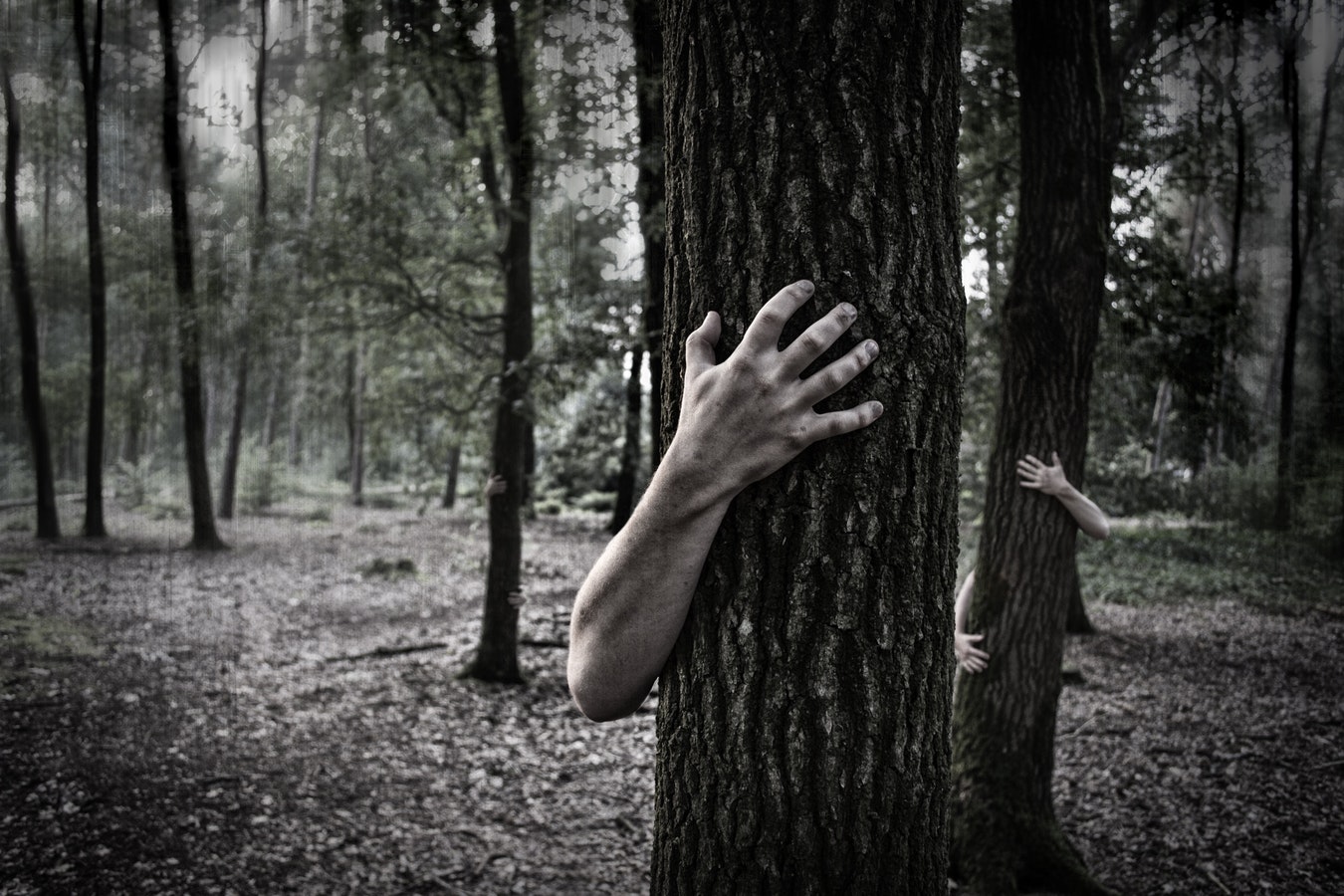Weaknesses (person’s character) is defined as a lack of strength, personal defect or more precisely character flaw.
There’s something quietly universal about human weakness. You don’t have to explain it. You don’t have to teach it. Every person who has ever lived has tasted it — in their mind, in their heart, in their actions, in their silence. Weakness isn’t always dramatic. Sometimes it’s subtle. It creeps in through exhaustion, through doubt, through the long hours when nobody’s watching. Sometimes it’s a moment of hesitation that costs you an opportunity. Sometimes it’s giving into a distraction instead of taking one more step toward your goal. But make no mistake — it’s there. In all of us. And it’s one of the most defining aspects of being human.
We live in a world that constantly celebrates strength. Productivity, resilience, hustle, confidence — these are the currencies of modern success. No one posts their indecision on social media. No one glorifies procrastination or emotional fatigue. And yet, those moments shape our lives just as much — maybe more — than our so-called victories. Because it’s in our moments of weakness that we make the hardest choices. Do we stay down or get back up? Do we give in to the noise or fight to remember who we are? Weakness, then, is not just failure. It’s a test. A signal. A fork in the road.
To understand human weakness is to understand something sacred. Because at its root, weakness isn’t about incompetence or brokenness. It’s about limitation. We are limited — in energy, in focus, in time, in willpower. We get distracted. We lose direction. We care deeply and then forget why. We chase things that don’t matter and neglect the things that do. We fall into comparison, self-doubt, addiction, avoidance. We lie to ourselves just to feel okay. Not because we’re evil. Not because we’re lazy. But because we’re overwhelmed. Because the human experience is often too much for one heart to carry alone.
It’s easy to judge someone for being lost. For being “weak.” But when you stop and look at your own life — really look — you realize how many times you’ve been there too. How many times you’ve chosen comfort over courage. Silence over truth. How many times you’ve let a dream fade, not because you didn’t want it, but because you were tired. Because you were scared. Because you weren’t sure it was even worth it anymore. These aren’t rare moments. These are common. And yet we treat them like secrets. Like personal failures we have to hide or deny. But what if they’re not failures at all? What if they’re part of the human curriculum — lessons built into the fabric of life?
Weakness doesn’t always come as collapse. Sometimes it comes dressed as perfectionism — the fear of not being good enough, so we overwork, overthink, overedit. Sometimes it shows up as distraction — filling our time with noise to avoid the discomfort of stillness. And other times, it’s avoidance — putting off the thing we know we should do, not because we don’t care, but because we care too much and we’re afraid of what it would mean to really try. To admit that it matters. That we matter.
The truth is, weakness doesn’t destroy us. Denying it does. Pretending we’re always okay. That we’ve got it all figured out. That we’re immune to doubt or exhaustion or temptation. That’s what slowly disconnects us — from others, from our goals, from our own heart. We build a version of ourselves that looks fine on the outside, but is quietly crumbling within. Not because we’re wrong, but because we’re human. And humans need space to feel. To break. To rest. To ask for help. To admit when we’re lost. That’s not weakness. That’s wisdom.
And yet… weakness does have consequences. It can steer us off-course if we don’t recognize it. It can lead us into loops of procrastination, fear, stagnation. When we let it drive, we lose momentum. We abandon things we once believed in. We settle for less. We forget our why. And worst of all, we sometimes start to believe that we were never capable to begin with. That we’re not cut out for purpose, or love, or meaning. That we’re simply flawed, destined to fail. That belief is more dangerous than any moment of weakness itself.
So what do we do with this truth?
We acknowledge it. We study it. We face it without shame. And we learn to listen to what our weakness is trying to say. Because underneath every failure is usually a message. Maybe you’re burned out. Maybe you’re afraid of success. Maybe you’re trying to please everyone. Maybe you’re disconnected from your values. Or maybe — just maybe — you’re too busy surviving to remember what thriving even looks like.
Awareness is the first shift. When you know you’re slipping, you can choose differently. You can pause. You can rest. You can reset. You can say no to things draining you and yes to things that rebuild you. You can stop numbing and start noticing. And over time, weakness becomes less of an enemy and more of a compass. It shows you where you’re not aligned. Where you’re not being honest with yourself. Where something needs healing, attention, or a change of direction.
You don’t have to be strong all the time. You don’t even have to have all the answers. But you do need to show up. To stay in the game. To remember what you’re here for. Because even if you fall a hundred times, even if you forget your way, you are still allowed to come back. To try again. To start over. There is no weakness in returning to yourself.
We’re not meant to be perfect. We’re meant to be real. To be present. To be learning. And part of learning is failing. Part of growth is losing track for a while. No one gets it right every time. What matters is not that you never fall — but that you don’t forget you can get back up.
So if you’re tired, be tired. If you’re lost, admit it. If you’re broken, don’t hide it. These things don’t make you less — they make you human. And the more we embrace that truth, the more grace we give ourselves and others, the more space we create for something better to grow.
You’re not behind. You’re not doomed. You’re not weak for feeling weak. You’re just a person — navigating the beautiful, messy, complicated experience of being alive.
And that, in itself, is strength.
Excess and abuse of the human being (Also know of the seven deadly sins)
The seven deadly sins, also known as the capital vices or cardinal sins, is a grouping and classification of vices within Christian teachings.[1] Behaviours or habits are classified under this category if they directly give birth to other immoralities.[2] According to the standard list, they are pride, greed, lust, envy, gluttony, wrath and sloth,[2] which are also contrary to the seven virtues. These sins are often thought to be abuses or excessive versions of one’s natural faculties or passions (for example, gluttony abuses one’s desire to eat).
Most of the capital sins, with the sole exception of sloth, are defined by Dante Alighieri as perverse or corrupt versions of love for something or another: lust, gluttony, and greed are all excessive or disordered love of good things; sloth is a deficiency of love; wrath, envy, and pride are perverted love directed toward other's harm.[21] In the seven capital sins are seven ways of eternal death.[5] The capital sins from lust to envy are generally associated with pride, which has been labeled as the father of all sins, etc.
Lust
Lust, or lechery (Latin, “luxuria” (carnal)), is intense longing. It is usually thought of as intense or unbridled sexual desire, which leads to fornication, adultery, rape, bestiality, and other immoral sexual acts. However, lust could also mean simply desire in general; thus, lust for money, power, and other things are sinful.
Gluttony
Gluttony (Latin, gula) is the overindulgence and overconsumption of anything to the point of waste. The word derives from the Latin gluttire, meaning to gulp down or swallow.
In Christianity, it is considered a sin if the excessive desire for food causes it to be withheld from the needy.
Greed
Greed (Latin, avaritia), also known as avarice, cupidity, or covetousness, is, like lust and gluttony, a sin of desire. However, greed (as seen by the Church) is applied to an artificial, rapacious desire and pursuit of material possessions. Thomas Aquinas wrote, “Greed is a sin against God, just as all mortal sins, in as much as man condemns things eternal for the sake of temporal things.” In the words of Henry Edward, avarice “plunges a man deep into the mire of this world, so that he makes it to be his god.
Sloth
Sloth (Latin, tristitia or acedia (“without care”)) refers to a peculiar jumble of notions, dating from antiquity and including mental, spiritual, pathological, and physical states.[30] It may be defined as absence of interest or habitual disinclination to exertion.
Wrath
Wrath (Latin, ira) can be defined as uncontrolled feelings of anger, rage, and even hatred. Wrath often reveals itself in the wish to seek vengeance.[33] In its purest form, wrath presents with injury, violence, and hate that may provoke feuds that can go on for centuries. Wrath may persist long after the person who did another a grievous wrong is dead. Feelings of wrath can manifest in different ways, including impatience, hateful misanthropy, revenge, and self-destructive behavior, such as drug abuse or suicide.
Envy
Envy (Latin, invidia), like greed and lust, is characterized by an insatiable desire. It can be described as a sad or resentful covetousness towards the traits or possessions of someone else. It arises from vainglory,[35] and severs a man from his neighbor.
Pride
Pride (Latin, superbia) is considered, on almost every list, the original and most serious of the seven deadly sins: the perversion of the faculties that make humans more like God—dignity and holiness. It is also thought to be the source of the other capital sins. Also known as hubris (from ancient Greek ὕβρις), or futility, it is identified as dangerously corrupt selfishness, the putting of one’s own desires, urges, wants, and whims before the welfare of people.
In even more destructive cases, it is irrationally believing that one is essentially and necessarily better, superior, or more important than others, failing to acknowledge the accomplishments of others, and excessive admiration of the personal image or self (especially forgetting one’s own lack of divinity, and refusing to acknowledge one’s own limits, faults, or wrongs as a human being).
Photo by Simon Wijers on Unsplash

